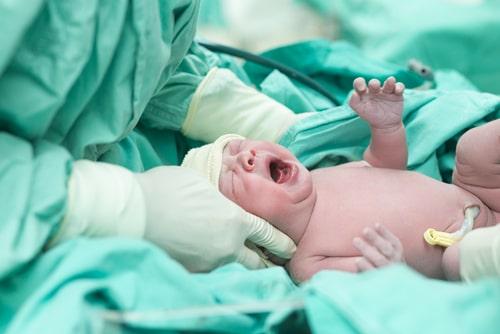Chicago, IL 60601
FREE CONSULTATIONS 312-462-4200
TOLL FREE 833-462-4200
What Are the Symptoms of Brachial Plexus Injuries for Newborns?
 Every parent wants their child to be healthy and happy, but a child's health and well-being may be affected by injuries that occur during childbirth. These may include brachial plexus injuries, which can affect the nerves in the neck and shoulders. Damage to these nerves during labor and delivery can result in conditions such as Erb's palsy, which may affect a child's ability to move their shoulder or upper arm. Parents will need to understand how to recognize the symptoms of brachial plexus injuries while also being aware of the steps they can take to ensure that a child receives the proper care and treatment.
Every parent wants their child to be healthy and happy, but a child's health and well-being may be affected by injuries that occur during childbirth. These may include brachial plexus injuries, which can affect the nerves in the neck and shoulders. Damage to these nerves during labor and delivery can result in conditions such as Erb's palsy, which may affect a child's ability to move their shoulder or upper arm. Parents will need to understand how to recognize the symptoms of brachial plexus injuries while also being aware of the steps they can take to ensure that a child receives the proper care and treatment.
Signs and Symptoms of Nerve Damage in the Neck and Shoulders
There are a variety of reasons why the nerves in a child's neck and shoulders may be damaged during birth. Shoulder dystocia, which occurs when pressure is placed on the child's arms or shoulders as they move through the birth canal, can result in multiple forms of nerve damage. Nerves may become stretched (neurapraxia), affecting their ability to send signals to and from different parts of the arm. In other cases, nerves may be torn or become separated from the spinal cord (avulsion), resulting in loss of sensation, mobility, or paralysis.
Since children cannot fully communicate what they are feeling, it is not always easy to determine whether nerve damage has occurred. However, there are certain signs and symptoms that may indicate that a child has experienced a brachial plexus injury, including:
-
Weakness or paralysis - One of the first signs of nerve damage will be indications of weakness in the affected arm. Depending on the type of injury that occurred, paralysis may be limited to the shoulder and upper arm, or it may extend throughout the arm and hand. The baby may have difficulty moving or flexing their arm, and they may not be able to reach for or grasp objects.
-
Decreased or absent reflexes - The body will respond automatically to different sensations, but a lack of a proper response may indicate nerve damage. A doctor may use a number of methods to check the reflexes in a baby's shoulders, arms, and hands, and if there is no response or if movements are weak or delayed, this may be due to a brachial plexus injury.
-
Loss of sensation - When a child experiences paralysis, they may not be able to feel touch or pain in the affected areas. If the baby does not respond to touch on their shoulder or arm, this may be a sign of a brachial plexus injury.
-
Abnormal posturing - If a brachial plexus injury has occurred, the baby's arm may be held in an unusual position or seem limp. An abnormally bent elbow or hand that is turned inward or assumes a claw-like position may also indicate nerve damage.
-
Muscle atrophy - Nerve damage can affect the development of muscles, and over time, the baby's affected arm may become visibly smaller compared to the other arm.
When brachial plexus injuries are diagnosed as soon as possible after birth, treatment can be provided to help avoid long-term complications or disabilities. In some cases, surgery may be required to repair damaged nerves or physical therapy may help restore range of motion in the affected arm and prevent muscle atrophy. In some cases, nerve damage may be permanent, and a child may require ongoing therapy to learn how to compensate for paralysis or the inability to fully use their arm or hand.
Contact Our Illinois Brachial Plexus Injury Lawyers
Brachial plexus injuries can affect a newborn's quality of life, and it is essential to identify the symptoms early on to ensure that medical treatment and other forms of care can be provided. At Birth Injury Law Alliance, Ltd., we work with families to help them understand the available resources and ways to provide their children with the care and treatment needed to ensure that they can live happy, healthy lives. We can help determine the causes of brachial plexus injuries and other birth injuries, ensuring that these issues will be addressed correctly. If your child has experienced nerve damage or other forms of harm, contact our Chicago brachial plexus birth injury attorneys at 312-462-4200 to schedule a free consultation and learn more about your options for meeting your child's needs.





